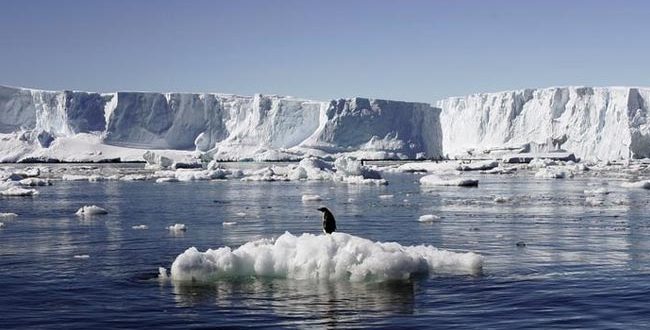Without the emissions cuts laid out in the Paris agreement, global temperatures could reach 2 C as early as 2040 and cause the fastest acceleration in sea level rise in human history, according to a new study.
Some climate models currently predict that by 2040, global temperatures could be 2 degrees Celsius (3.6 degrees Fahrenheit) warmer than pre-industrialization temperatures. By the end of the 21st century, we could see global temperatures climb more than 5 degrees Celsius (9 degrees Fahrenheit). The Paris climate accord wants to keep the planet’s temperature increases “well below” 2 degrees Celsius. But last week the United Nations warned that even under the international agreement, we’re probably going to see temperatures rise by about 3 degrees Celsius (5.4 Fahrenheit) by 2030.
Rising global temperatures mean rising sea levels as glaciers and land ice sheets melt. The scary thing is that even if we do manage to stop global temperatures from continuing to warm, sea levels could keep rising for centuries afterwards. So predicting where, when, and how much the seas will rise is particularly challenging — and particularly key. In this new study, published yesterday in the Proceedings of the National Academy of Sciences, scientists led by Svetlana Jevrejeva from the National Oceanography Centre in the UK predicted the likelihood and locations of sea level rise with temperature increases of 2, 4, or 5 degrees Celsius.
They calculated that by the end of the 21st century, 136 of the largest coastal cities — including New York and New Orleans — could see waters rising at least three feet, and possibly closer to 6.5 feet. That could displace more than 1 million people in New York and another 1 million in New Orleans. About 2.5 million would be displaced in Miami; 2.1 million in Guangzhou, China; and 1.8 million in Mumbai, India. Low-lying nations like Bangladesh and Vietnam could be especially hard hit.
And the speed with which this could happen could make it hard to adapt, the authors of the study write, putting small island nations, coastal ecosystems, and coastal sites of cultural and historical importance at risk. “The coastal communities of rapidly expanding cities in the developing world, and vulnerable tropical coastal ecosystems, will have a very limited time after midcentury to adapt to sea level rises unprecedented since the dawn of the Bronze Age,” they wrote.
Agencies/Canadajournal
 Canada Journal – News of the World Articles and videos to bring you the biggest Canadian news stories from across the country every day
Canada Journal – News of the World Articles and videos to bring you the biggest Canadian news stories from across the country every day



